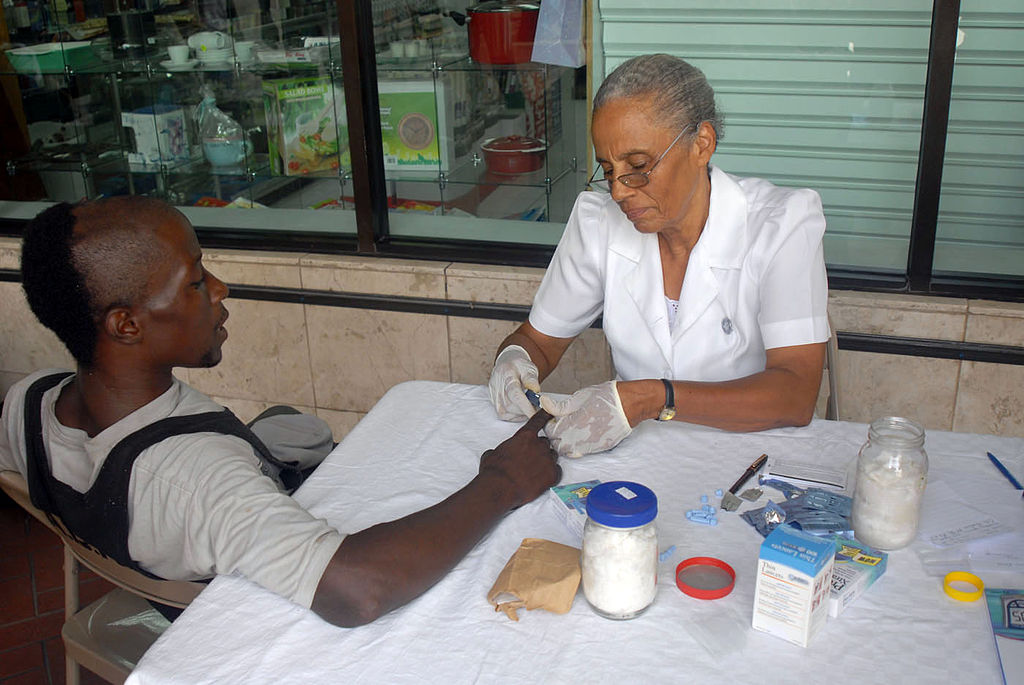Does the United States Steal Nurses from the Developing World?
Jamaica’s healthcare system has a critical problem: there are not enough specialist nurses in the country. Jamaica produces plenty of specialist nurses. However, nurses trained in Jamaica are leaving the country to work in places in the developed world, like the United States or the United Kingdom. According to a recent NPR article, “the exodus has forced Jamaican hospitals to reschedule some complex surgeries because of a lack of nursing staff on their wards.” James Moss-Solomon, the chairman of the University Hospital of the West Indies in Kingston, accused richer countries like the U.S. of “poaching” nurses from Jamaica. The use of the verb “to poach” —which can mean “to take something in an unfair way”—implies a moral condemnation of the practice.
Moss-Solomon claims that the motivations for the practice are primarily economic. It is much cheaper to train nurses in developing countries like Jamaica than it is in richer parts of the world like the United States. Hospitals can save money by hiring nurses from these developing countries rather than investing in training programs at home. For the nurses, the salaries they can earn in countries like the U.S. or U.K. can be two to three times as much as they might earn in Jamaica.
The moral issues here are complex because there are three different actors with potentially different responsibilities for the problem: the health care systems of developed countries that recruit nurses, the health care systems of developing nations that are losing nurses, and the nurses themselves. We can agree that there is a problem here, since the health systems of countries like Jamaica are clearly suffering. The question is: Who has the responsibility to fix it?
The term “nurse poaching” used by Moss-Solomon lays the blame squarely on the developed countries. Once can think of the pool of specialist nurses as a resource needed for a country’s health care system to function smoothly. Jamaica would argue that it has a right to this resource because the country invested in the training and infrastructure to create it. Developing countries are stealing this resource by recruiting the nurses without investing in their training.
So, if developed countries are morally to blame for poaching nurses from developing countries, are the governments of developing countries justified in restricting nurses’ right to migration? Nurses, of course, are not just resources like gold and silver. They are people, and people have individual rights. One right recognized by international organizations is the right to the freedom of movement. The United Nations’ Declaration of Human Rights claims that “everyone has the right to leave any country, including his own, and to return to his country.”
Now, this right is not absolute and open-ended. Most recognize that individual countries also have the right to enforce reasonable immigration policies to control the flow of immigration into their county. However, this is not an issue here, since these developed countries are actively recruiting these nurses. It is less clear if a country has a right to prevent people from leaving for the reason of protecting their own health care resources.
This leaves us with the final actor in this moral conundrum: the nurses themselves. Is it wrong for the individual nurses to leave their home countries to practice their nursing profession in another country? Do nurses have a moral obligation to their home country? We may recognize that they have a legal right to leave, but should they?
In a 2003 article in Nursing Ethics, a group of healthcare professionals from the developing world make the following argument (“The Ethics of Nurse Poaching in the Developing World” by Jerome A. Singh et. al.). They argue that nurses have a moral responsibility to their home countries for three reasons. First, the nurses’ skills are more acutely needed in their home countries, since the developing world currently suffers disproportionately from the global burden of diseases. Second, nurses owe their home countries for their training, since it is often subsidized to some degree by taxpayer money. Finally, nurses acquire their skills by practicing on their fellow citizens. It is the patients of the developing countries that take the risk of being treated by these nurses-in-training. Therefore, it is those patients who also should reap the benefit of being cared for by those nurses when they are fully trained.
I have not discussed whether the home countries also have some responsibility for the nurse shortage crisis, and this is certainly worth some investigation. It would be much harder to hold the individual nurses to a patriotic obligation to stay in the country if, for example, the nurses could not expect to be paid a living wage or enjoy other decent working conditions. Whoever has ultimate responsibility for the nurse shortage crisis in places like Jamaica, those involved need to come up with a mutually acceptable solution to avoid any serious and long-term effects on the sustainability of health care systems in the developing world.





